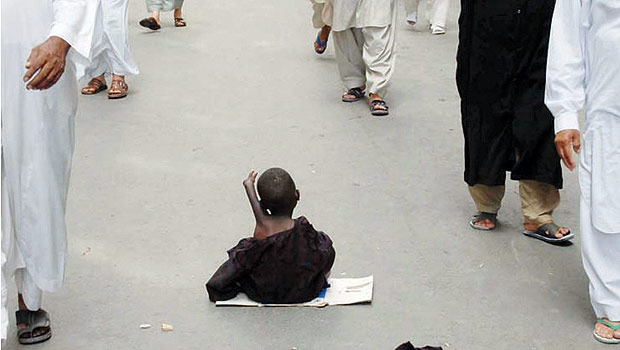Some of them resort to trickery and pretend to be disabled or sick just to win sympathy. They use the holy month of Ramadan as a golden opportunity to earn huge amounts of money, particularly targeting Umrah pilgrims and visitors to the holy mosque.
Nowadays, there has been a huge increase in the number of those who resort to beggary in the holy city.
The Makkah Governorate has managed to drive beggars out of the central Haram area. As a result, beggars are now mainly concentrated in surrounding areas, including Misfalah, Ajyad, Shubaika and Hafayer.
Local citizen Hosni Ziyada said that a large number of beggars from various nationalities are seen on major roads and pathways leading to the central Haram area as well as districts where Umrah pilgrims are staying. They are also present at almost all traffic signals, commercial markets and public places. Ziyada urged authorities to take strict action against beggars who are seen as damaging the reputation of the holy city and its sanctity.
He also drew attention to the fact that beggars abuse people who refused to give any alms.
“A Yemeni woman beggar scolded me when I refused to give her charity at a traffic signal in Al-Awali. She even prayed against me loudly in front of others. When I described this incident to my friends, they laughed and said that most of them have had similar experiences,” he said.
Ishaq Nawawi, another local citizen, noted that the committee responsible for tackling beggary has been successful in putting an end to the practice in the central Haram area, particularly at the Grand Mosque and its courtyards.
“This has prompted many beggars to concentrate on major roads leading to the area. There are many beggars who pretend to be handicapped to win sympathy of pilgrims,” he said.
“While I was driving to Jeddah from Makkah, I stopped near the first mosque on the expressway. When the imam finished leading Asr prayers, a Yemeni national was seen standing up in the first row of worshippers. He was carrying another man in his arms and claimed that it was his brother who was suffering from quadriplegia and appealed to people for help,” he said adding that a large number of worshippers were sympathetic and came forward to give them alms.
Ishaq said that he happened to see the same beggars at another mosque along the expressway in the Bahra area one week later.
“I was surprised to see that there had been a total change in their act. This time, the man who had pretended to be quadriplegic was appealing to people for help and carrying the other man in his arms. I could not believe my eyes,” Ishaq said.
“This prompted me to shout at them, calling them cheaters. Suddenly, to the utter bewilderment of the worshippers, the two guys ran out of the mosque,” he said.
The owner of a Haj service firm said he had a similar experience.
“A group of Haj pilgrims from a South Asian country came to our office. There were 48 pilgrims in their bus. I received them at the office and distributed wristbands and identity cards from the South Asia Tawafa Organization. At the time, I was puzzled to see that all of them were people with special needs,” he said.
“Being highly sympathetic of their condition, I welcomed them wholeheartedly and arranged accommodation for them close to our office at Jabal Kaaba region. The next day, I was surprised to see them begging near the office premises. They had tied nylon bags around their necks that were almost filled with alms,” he said.
Hatem Badri, another citizen, spoke about a racket of African men and women who come to the Misyal area in the Misfala region every Haj and Umrah season.
“This racket manages a large number of handicapped boys and girls who use various tricks to obtain money from pilgrims. The gang checks up on the children every now and then and disappears with the money that they have collected,” he added.










